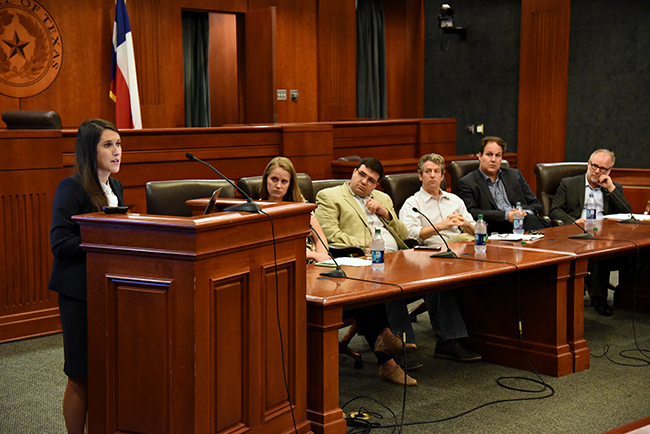Even though the death penalty is less used within the U.S. judicial system now in comparison to previous decades, it still commands a large portion of the Supreme Court’s time and resources, according to UT law professor Jordan Steiker.
Faculty members belonging to the Capital Punishment Center at UT reviewed Supreme Court capital punishment cases that occurred during the past year at a case review Monday.
While the death penalty aims to act as a deterrent and a method of retribution, a large number of Americans have begun to turn their back on it, Steiker, director of the Capital Punishment Center, said.
Ashley Alcantara, Plan II and government junior and communications director for University Democrats, said capital punishment should be outlawed.
“Capital punishment is not a good deterrent,” Alcantara said. “There is always a risk of killing an innocent person.”
Madison Yandell, government junior and president of College Republicans, said capital punishment should be reserved for cases that involve heinous crimes.
“People value life, so if they know the punishment is going to be life, it deters crime,” Yandell said. “Capital punishment serves the family of victims because it is a small way of achieving justice for them.”
The faculty panel discussed Glossip v. Gross, a 2015 Supreme Court case that maintained lethal injection does not violate the Eighth Amendment. Supreme Court Justices Stephen Breyer and Ruth Bader Ginsberg wrote a dissent representing the shifting opinions of Americans against the prevailing death penalty.
“There are four categories of arguments in the dissent,” Steiker said. “Capital punishment is unreliable because people are wrongly killed, it’s often used arbitrarily, the length of death row is cruel and the growing distance between sentencing and execution diminishes the aspect of retribution.”
There are still Supreme Court capital punishment cases waiting to be heard. For future cases, the judicial system can be improved by having stricter regulations on when capital punishment is used, Alcantara said.
“For instance, the judicial system needs to make sure that the mentally ill are not on death row,” Alcantara said. “We must err on the side of caution.”
The criminal justice system has already improved by requiring DNA testing for the use of the death penalty, but the legal system can be made even better through student involvement, Yandell said.
“I think that students should be more involved in every aspect of the legal system,” Yandell said. “Whether it be directly or indirectly, the Supreme Court interprets laws that affect you every day.”





















